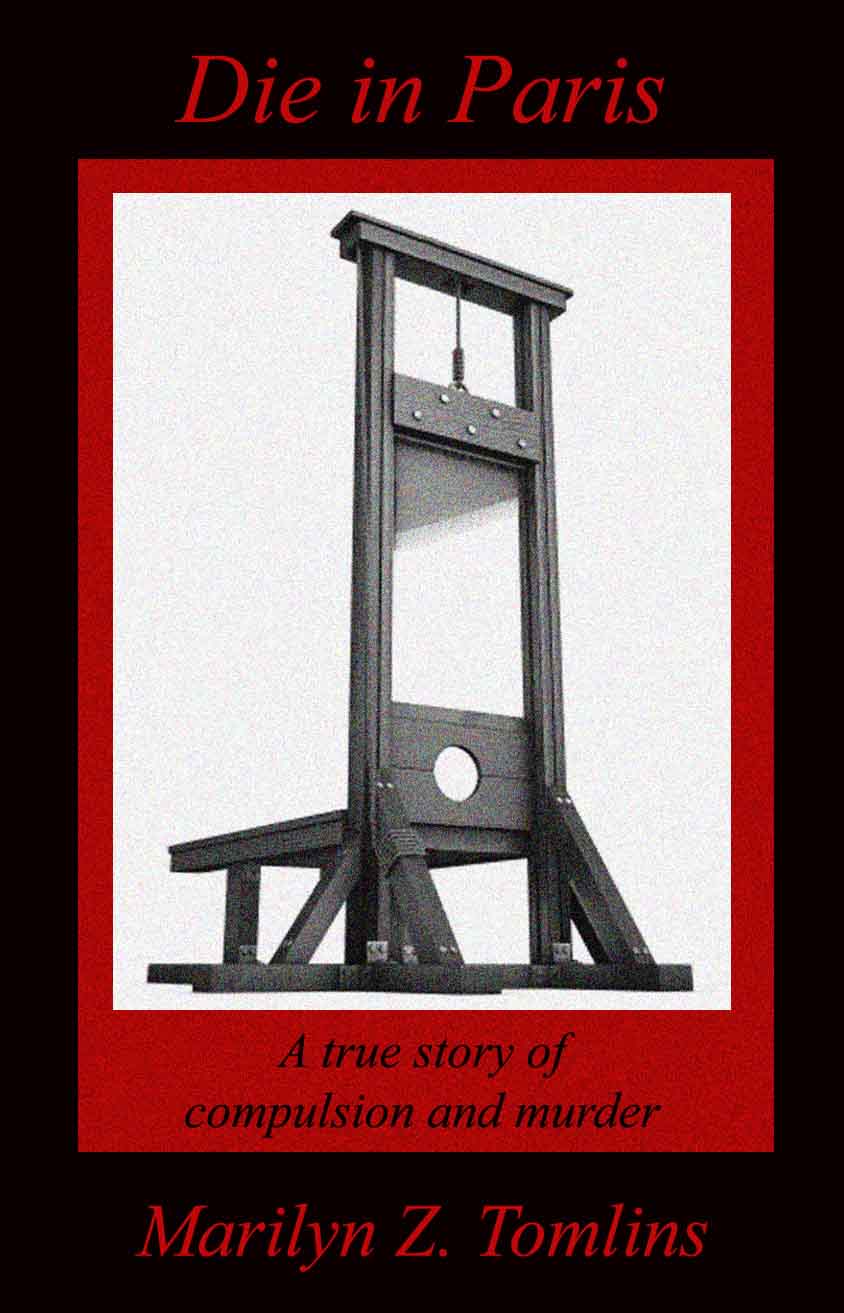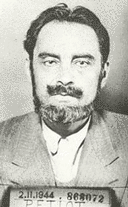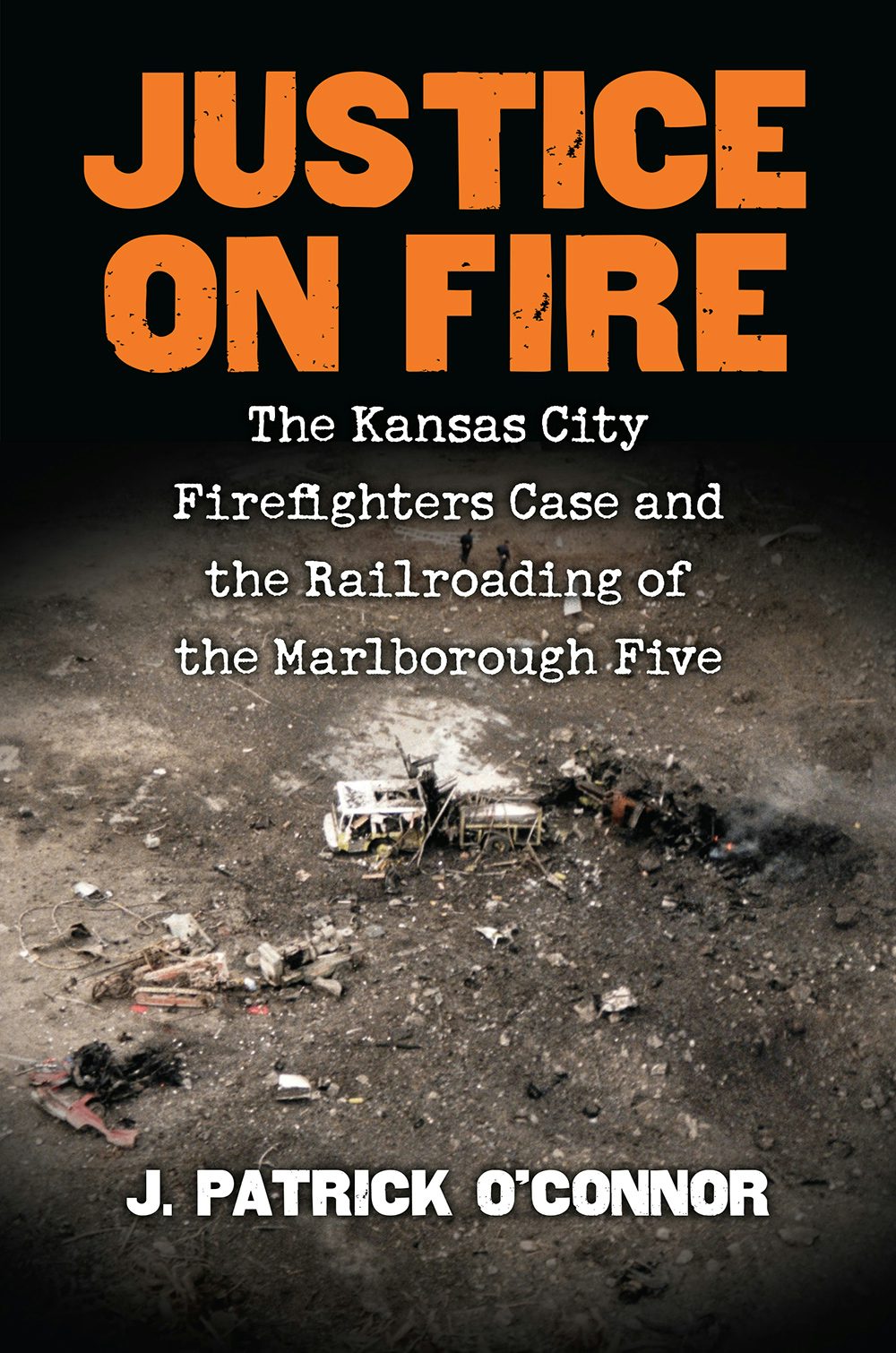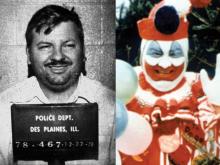An excerpt from the opening chapters of Marilyn Z. Tomlins’s Die in Paris, published in the United States in September of 2010 by Raider Publishing International. The book is available at amazon.com, barnesandnoble.com and borders.com.
In the early evening of Saturday, March 11, 1944, the telephone rang on the desk of the duty officer at the Porte Maillot police station house. Until that moment, Rue le Sueur in Paris’ elegant sixteenth arrondissement had made it into the news just once. That was in April 1912. That month, the French singer and actress, Léontine Pauline Aubart, from Number 17, had set sail from Southampton for New York with her lover, Benjamin Guggenheim, but she had returned to Rue le Sueur, alone and grieving. The ship she and her Ben had boarded in Southampton for the Atlantic crossing was the Titanic. Guggenheim had gone down with the ship.
Rue le Sueur would yet again be in the news.
On the phone was Jacques Marçais, a retired clerk. Jacques and Andrée, his wife, lived in an apartment at Number 22 Rue le Sueur. He was calling to report that for the past six days pestilential smoke has been pouring from the chimney of a townhouse across the street.
The duty officer did not understand why someone would think that a smoking chimney needed investigating. In 1938, world war had broken out and France had capitulated to the enemy – Nazi Germany – and, since June 1940, when the Germans had occupied northern France, which included Paris, they’d been imposing frequent power cuts on the Parisians. It might have been spring, but it was still cold in Paris, and the Parisians had to light fires for heat. Consequently, in just about every Paris living room, a fire was roaring, and, from every Paris chimney, poured smoke.
Jacques explained. It was the chimney of an uninhabited house, and that was certainly not normal. The duty officer promised to send a patrolman over as soon as possible.
Occupied France
In prewar days, on a Saturday evening at six – it was six sharp when Jacques stepped outside to wait for the patrolman – the narrow, one-way, Rue le Sueur would have been buzzing. Some of its residents would have been coming home with last-minute purchases from the family-owned shops on neighboring Rue Pergolèse. Others would have been setting off for a night of fun in Paris’ multitude of cabarets and music halls.
On that night, almost four years into the German occupation, Rue le Sueur was dark, deserted and silent. Not only had wartime food rationing and shortages emptied the shelves of Rue Pergolèse’s shops, but a blackout and curfew were in force. The blackout siren had sounded at six, but though the curfew would not commence until ten, all the street’s residents were already indoors.
Jacques would also have been indoors.
Approaching the townhouse with the smoking chimney, he very much wished he were.
Rue le Sueur – The Townhouse with the Smoking Chimney
Today, Rue le Sueur is what real estate agents describe as prime location.
A street of handsome apartment buildings, boutiques, offices and an embassy, it runs between Avenue Foch and Avenue de la Grande-Armée. Avenue Foch enjoys the reputation of being the Paris street with the most expensive properties, and Avenue de la Grande-Armée is one of the twelve avenues opening onto Place de l’Étoile at the upper end of Avenue des Champs-Élysées. Therefore, ‘Étoile’, with its Arc de Triomphe monument, is but a stone’s throw from Rue le Sueur. The Eiffel Tower standing in the public garden of Champs-de-Mars is also close; at night the tower glitters beyond the Avenue Foch end of the street.
In 1944, four- and five-story turn-of-the-century apartment buildings lined the street, the traffic moving from Avenue de la Grande-Armée towards Avenue Foch. There were, in fact, only two businesses on the street. One was a tiny bougnat-bistro. The other was a garage. The bougnat-bistro – a coal merchant, who also sold wine, something one no longer comes across in Paris – was at Number 19. The garage took up all of the ground floor at Number 22 where Jacques and Andrée lived. From the top of the building fluttered the Nazis’ red, white and black Swastika; in June 1940, at the fall of France and the commencement of the occupation, the Germans had requisitioned the garage for TODT, the Wehrmacht’s Supply Service.
The townhouse with the smoking chimney, built in 1834 on three hundred and twenty-three square meters of land, the only hôtel particulier – individual house – amongst apartment buildings, was at Number 21. It was four stories high, which, in present day French architectural terms, means that it had a rez-de-chaussée – ground, premier – first, deuzième – second, and troisième – third, floor.
Once the home of a prince and princess, the Prince and Princess Colloredo de Mansfeld - he was Czech and she French - and the most elegant property on the street, the townhouse was in a state of utter dilapidation. Its façade was black with grime and dust, pigeon droppings covered the metal window shutters – there were four windows to a story – and paint peeled from its large double front door, a porte cochère – a gateway – through which horse-drawn carriages had once passed.
The townhouse’s decline had begun on the death of the Prince in the 1930s when the Princess had moved out, leaving the upkeep of the magnificent house to tenants. One tenant had been the French actress Cécile Sorel who had used the townhouse as a warehouse for stage props. What had further contributed to the state of the property’s dilapidation was that the Princess had sold it at just about the same time TODT had requisitioned the garage across the street, and the new proprietor had not moved in. He had, instead, also used the townhouse as a place of storage. Or so Jacques and Andrée had thought.
The story that the couple would tell about the townhouse after that March night, was that the goings on at the property after the Princess had sold it, had intrigued them.
They said that the new owner, a youngish man – they thought that he was in his thirties – used to come to the townhouse quite often, but that he had never remained for long, just for a few hours, and such visits were either at a very early hour of the morning or at nightfall.
They said that he had arrived either on foot or on a bicycle, always approaching the townhouse from Avenue de la Grande-Armée. When he was on his bike - it was painted green - he was dressed in bleu de travail, the blue overalls and cloth cap of a French worker, but when on foot, he looked the Paris gentilhomme; he wore a suit, shirt with starched cuffs and collar, a fedora and a brightly-colored bow tie. Often, when on his bike and dressed like a French worker, he pulled a small cart behind him; bikes and vélo-rickshaws (a cart pulled by bike or horse) had become the primary modes of transport in Paris, because, along with rationing food, the Germans were also rationing petrol. His cart was always packed high. They had wondered what he was carting to the house. Whatever it was, it was hidden under a stained sheet of canvas.
When on foot and looking the Paris gentilhomme, he frequently had another person, male or female, with him. They always carried suitcases – always two suitcases - and should the person with him be a woman, he carried one of her suitcases for her. Those visitors had puzzled the couple as much as the man; whereas he had set off again after a while, they had remained at the house, and no sooner had the man disappeared around the Avenue de la Grande Armée corner, than sounds of banging drifted from the townhouse. The banging had often continued deep into the night. There had once even been banging on a Christmas Eve; it had been interminable. On other nights, other noises, too, had drifted from the house: a child’s crying, a woman groaning as if in pain, a man shouting angrily.
One of the street’s residents had even heard a man’s voice calling out for help from somewhere deep inside the house one night when he had walked by long after the curfew had sounded.
“Au secours! Au secours! S’il vous plait, au secours!” Help! Help! Please help!
The couple would say that around May or June of the previous year, they had noticed that the man had stopped coming to the townhouse. He had obviously abandoned the place. The months had passed and 1943 had ended, and there still had been no sign of the man, or of anybody else, at the townhouse.
Then, on Monday, March 6, the townhouse’s chimney had started to spew smoke.
The couple would say that, at first, the smoke had risen in thin, white coils, which the early spring wind had swept into their kitchen; they lived on the top floor. Around midnight, that night, the smoking had stopped, but only to recommence the following morning. All of that Tuesday, the smoke had again risen into the sky, and, again, at around midnight, it had stopped, only to begin again the next morning. The smoke had by then turned black and a pestilential stench clung to it, as well as to everything else; their furniture, their clothes, their hair; even the food they ate.
As Andrée would continue with the story, on that third day, she had started to feel queasy and soon she was vomiting. She wanted Jacques to summon the police or the fire service, whichever would get to the townhouse quicker, but he had refused. He wanted to know from her whether she’d forgotten that France had lost the war and that the victorious Boches – the Germans – had become their new masters. Having ‘swallows’ swarming all over the street was bound to draw the Boches’ attention and that would have been most undesirable, he had told her. He knew that contact with the police was contact with the Germans. At the start of the occupation the police force had been given the choice of resigning or working under German orders. It had chosen the latter. The Germans, therefore, knew whatever the police were doing.
“But I insisted and he had no choice but to summon the police,” Andrée would end her story.
“And just as well I did,” Jacques would always interrupt her.
On reaching the townhouse, he had seen that someone had left a note pinned to the gateway. The note had obviously been there for some time, because rain had smudged its words: ‘Absent for a month. Forward mail to 18 Rue des Lombards, Auxerre’.
The townhouse had indeed been abandoned.
Its chimney should not have been spewing smoke.
The Charming Dr. Petiot
About fifteen minutes after Jacques reached the townhouse, two faint strips of bicycle headlights came around the corner of Avenue de la Grande–Armée. “Swallows” patrolled by bike and Porte Maillot had sent over not one, but two. Because of the blackout, the bike’s headlights were painted blue as those of all vehicles had to be.
|
|
| Police photo of Dr. Petiot (Copyright Roger Viollet, Paris) |
Patrolmen Joseph Teyssier and Emile Fillion’s shift was about to end. The call to Rue le Sueur would be the last of the day. They wanted to get it over with so that they could go home.
Wasting no time, they wanted to know from Jacques what was going on.
He showed them the note.
Several of the street’s residents, including Andrée, had stepped out and the concierge – janitor – from the apartment building at Number 23, the building next door to the townhouse, walked up.
“The proprietor’s name is Petiot,” she said.
He was a family doctor.
“He lives at Number 66 Rue de Caumartin in the ninth arrondissement.”
The patrolman knew that Rue de Caumartin was close to Printemps department store and Saint Lazare railway station.
The concierge had more information to pass on.
The doctor had bought the townhouse two years previously, at which time he had building work done. He left a set of keys with her to let the workmen into the house in the mornings and to lock up after them at night.
“He is an attractive man. Charming, too. Real gentleman, if you ask me,” she said.
He never talked down to her because he was a doctor, and she, the janitor of a building.
“But the house does not look all that great inside, if you ask me. Not for a doctor’s place, alors,” she said.
She had the doctor’s telephone number.
“PIGalle 77-11.”
She suggested that the patrolmen call him and summon him to his townhouse.
The two patrolmen decided that they would.
On the corner of Avenue de la Grande-Armée was a bistro, Le Crocodile. Patrolman Teyssier, more extrovert than his colleague, walked there to make the call. The bistro was already shuttered for the night. The Germans were also imposing three “dry” days on the Parisians and that Saturday was such a day. There had been no reason to keep the bistro open.
At Teyssier’s first knock, the owner hastily rolled up the metal shutter. Having heard noise on the street, and having been concerned like all his neighbors about the smoke and the stench, he had been watching from an upstairs window, pleased that the police have been summoned. He had wanted to do so himself, but like Jacques, he, too, had not wanted to draw the attention of the Germans.
A couple of minutes later a telephone exchange operator put Patrolman Teyssier through to PIGalle 77-11.
A woman picked up.
“Bonsoir, Madame, it’s the police,” said Patrolman Teyssier into the mouthpiece.
He asked to speak to Dr Petiot.
“I will call him, Monsieur l’agent,” replied the woman.
A man’s voice came on the line.
“Bonsoir, Monsieur, it’s the police,” repeated the patrolman.
He apologized for calling in the evening; it was dinner time and, despite the food rationing and shortages, it was still a sacred moment for a Frenchman.
“A fire has broken out at Number 21 Rue le Sueur, and I’ve been told the property belongs to you,” he explained.
There was a slight hesitation on the other end of the line.
“Have you gone in?”
Patrolman Teyssier said he had not.
“Don’t, and don’t touch anything,” cautioned the voice. “I’ll be right there. In fifteen minutes at the most; it will take me that long to cycle over. I’ll be bringing the key. But don’t go in! Wait for me.”
Before the patrolman hung up, he asked the doctor – he presumed he was speaking to the Dr. Petiot, proprietor of the townhouse – to hurry.
“It’s urgent. The smoke stinks, and everyone feels sick!” he said.
For half an hour, the two patrolmen waited for the doctor to materialize, and, after having waited for another fifteen minutes with still no sign of him, Patrolman Teyssier returned to Le Crocodile to make another telephone call. The owner, having changed to his working clothes of black trousers, white short-sleeved shirt, black waistcoat and a white, ankle-length, cloth apron tied around his waist, was busy opening up. He sensed it was going to be a busy night on the street and he was willing to break the law; if anyone wanted something stronger than a cup of ersatz coffee, he was their man.
Patrolman Teyssier called Porte Maillot again. He asked for the fire service to be sent over. He wanted them to hurry because something awfully rotten was burning.
Ten minutes later, a fire engine, headlights also painted blue, raced around the Avenue de la Grande-Armée corner and up Rue le Sueur and came to a halt in front of Number 21, its tires screeching.
Dead Bodies in the Basement
Like everything else in wartime Paris, locks were hard to replace. Caporal Avilla Boudringhim of Porte Maillot fire service, having been told by the two patrolmen that the townhouse’s owner was a doctor, was reluctant to smash the one on the gateway. Therefore, he and his crew of three entered the property through one of the shuttered ground floor windows: neither the old shutter nor the cracked window pane behind it had offered their hammers much resistance.
Inside the house, they found themselves in a large salon.
They saw by flashlight – a switch in a wall had failed to produce light – that the room was in a state of great disarray. Several items of furniture, some broken, others covered in old blankets, were piled against the walls. Cardboard boxes, hat boxes and suitcases lay all over the floor. Some of the suitcases were open: an incredible array of goods spilt from them. There lay men’s jackets, ties, socks, a woman’s gold lamé dress, a large feathered hat, handbags, numerous pairs of shoes. Also, pots of face cream, boxes of pills, tubes of ointment, some razors, pairs of eyeglasses, some cutlery and crockery, several army-issue blankets and several sheets. Price tags were attached to several of the items and some suitcases bore labels of Orient Express trains, Cunard cruise liners, and luxury hotels in London, Nice, Venice, Istanbul and New York. It was as if someone had abandoned moving in or had been disturbed whilst moving out.
Boudringhim and his men made their way from the room to an oval-shaped hallway. It was in perfect order; it was even elegant. The walls were covered in tapestry. On the floor lay a carpet, which looked expensive, and brocaded Louis Quinze chairs were arranged in a semicircle in front of a marble fireplace adorned with two harp-playing porcelain cherubim. A large still life hung on one of the walls.
A red-carpeted staircase led from the hallway to the upper floors and the fire chief motioned to his men that they were going to see what was upstairs.
The stairs led to a corridor, doors on both sides. The men opened each and flashed their lights into the rooms in front of them. All, but one of the rooms, were in a similar state of disorder to the salon. The exception looked like it was being turned into a study, perhaps a library. Its walls were lined with glass-fronted cases, all filled with books. More books lay in piles on the floor.
The firefighters went up another staircase, this one narrow and uncarpeted, their footsteps deafening in the darkness. Again, they pushed open doors and flashed their lights into rooms, all cluttered with boxes, suitcases and old dusty furniture.
Down the men went again. Upstairs, they had counted the rooms; there were ten. Nowhere up there had they found any signs of fire. The stench that was out on the street had been present, yes, and they had had to cover their noses with large woolen handkerchiefs they carried around especially for that purpose, but they had not even seen a match or a cigarette butt anywhere.
The house had a basement. A second staircase in the hallway led down to it. The firefighters were going to go down to see what was there, but a glass door drew their attention. The door was closed, but not locked. It opened onto a small, dark, oblong courtyard. The locked gateway was at one end of the courtyard. At the other was an archway. A second larger courtyard could be seen beyond it. A narrow metal door also led off the courtyard. The door was ajar. Behind it was a set of narrow, cracked stone steps. The men knew that those would lead down to the basement. They started to descend, stepping carefully so as not to trip in the semi-darkness. It had been chilly in the courtyard; going down the steps, the air turned hot and foul, fouler than what it had been in the house. There was a door at the bottom of the steps. It, too, stood ajar. Judging by all the open doors, the house’s proprietor seemed to have left the townhouse in a great hurry.
In the excitement of that moment the firefighters did not think of looking for the electrical mains to switch the electricity back on; in Paris townhouses, the mains were always in the basement. By flashlight, they saw that the basement consisted of a short, narrow, low-ceilinged corridor. Several doors led from it. Those were closed. The men opened one after the other; again not one was locked. Behind each was a tiny roughly-cemented room. The rooms were all empty. Flashing their lights into the last room on the corridor, they knew they had found the source of the stench.
The room in front of them was approximately four meters wide and three meters deep. Rusty water pipes and flyspecked electrical wires ran up its walls and into a ceiling blackened with soot and blistered with damp. Two old and dented coal and wood burners stood against one of the walls. One was much larger than the other. The smaller was rusted and it had neither door nor chimney; it was obvious it would never work again. Coal was smoldering in the furnace of the larger one. A burnt log, or what looked like one, protruded from the coal. The firefighters covered their noses; the air was really foul. They stepped into the room, Boudringhim leading. They had to have a closer look at the burner; they wanted to see if there might be something else in its furnace. Boudringhim poked at the log with his flashlight; he wanted to free it, but only ash scattered to the floor.
He groaned.
What was protruding from the coals was indeed not a log; it was an arm. The hand was still intact: the fingers, swollen and black, were clearly discernible. They were pointing at him. It was as if they were beckoning him to come closer; to come and see what was going on and to do something about it. To help.
He leaned forward and another groan escaped him.
In the furnace, flames were devouring a human skull, its eye sockets empty and its mouth agape. It was as if the skull, too, was making a final effort to call for help, to yell for help.
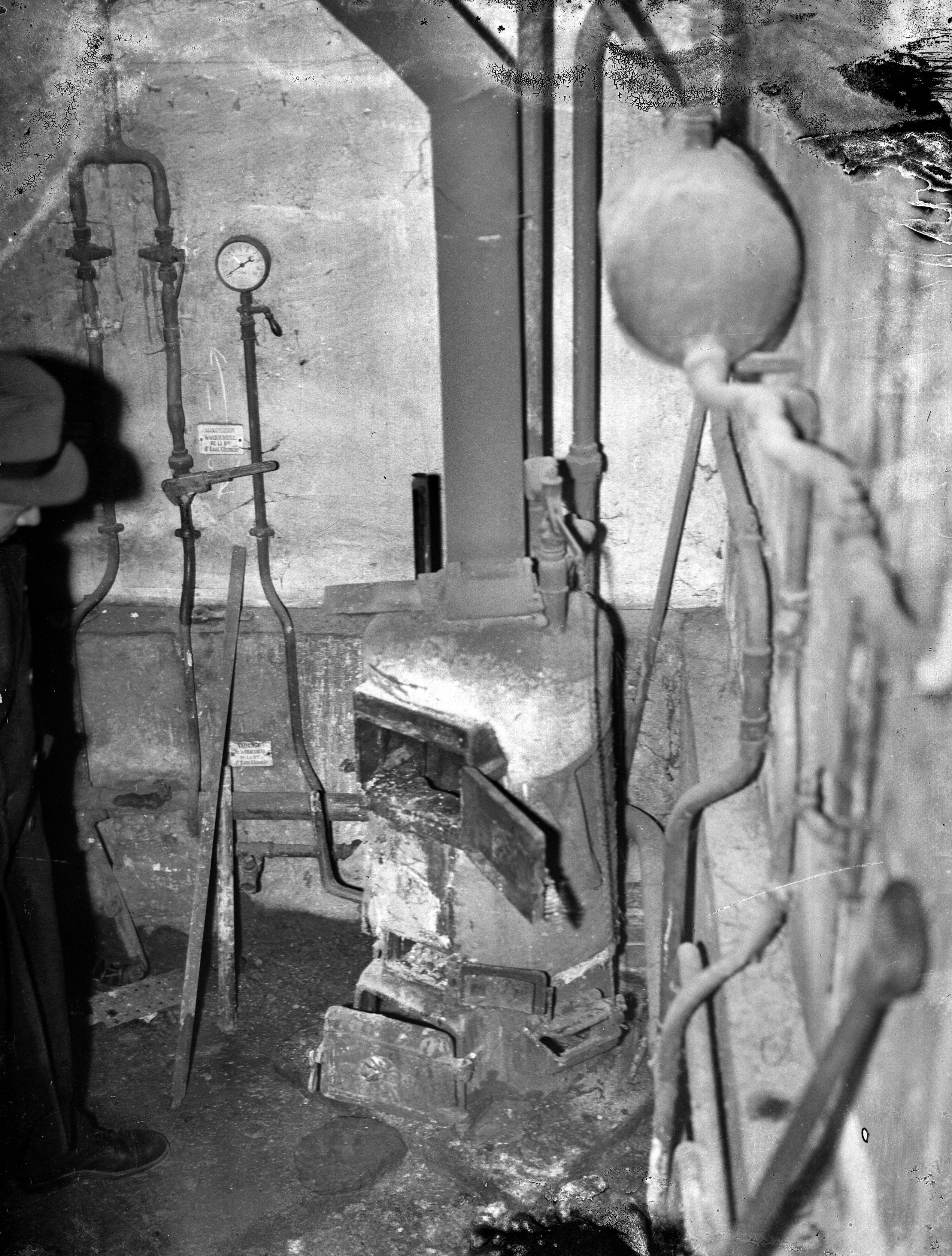 |
| The burner standing on a carpet of human ash and bones. (Copyright: Roger Viollet, Paris) |
There was more horror.
In a corner of the room lay a pile of human remains.
The firefighters flashed their lights at it. They saw a foot, a rib cage, a jawbone, another arm, another skull; the complete torso of a woman.
“What could I have done in such a place?” Boudringhim would later ask.
He motioned his men to get the hell out.
Terror speeds the legs.
Within moments, the four put their hammers to the gateway’s precious lock. The lock, smashed, they staggered on to the sidewalk.
The two patrolmen were waiting.
“Messieurs… you have some work ahead of you!” stammered Boudringhim.
The fire chief wanted to say more, tell the two what he and his men had seen, but the words would not come. One of his men was vomiting against TODT’s garage. The other two had sunk to their knees in the gutter.
In the morning, in his statement to the police, Boudringhim would say: ‘After exploring the ground and upper floors of the house, we went down to the basement and, guided by the smell, we came to a room with the two burners. There we saw human flesh burning in one of them. We also saw some human remains lying on the floor. A fleshless arm stuck from the lighted furnace. I think it was the arm of a woman’.
The two patrolmen braced themselves for what was to come and disappeared into the house. Their noses led them to the basement. Having seen what no one should have to see, they too turned on their heels and fled. Outside, Patrolman Fillion collapsed against the house. His colleague continued running. He ran to Le Crocodile to make his third telephone call of the night.
He again called Porte Maillot.
“We need help over here!” he shouted into the mouthpiece. “We’ve found bodies burning… lots of them.”
The duty officer said that he would immediately send more men over.
Dr. Petoit’s Brother Arrives
Patrolman Teyssier had hardly returned from Le Crocodile to join his colleague in front of the townhouse when a bike sped around the corner at Avenue de la Grande-Armée. The cyclist – a man - wore a gray tweed overcoat and black fedora. Reaching the townhouse, he leant the bike against TODT’s garage; next, he walked over to the two patrolmen. His breathing coming in rapid gasps, he greeted Patrolman Teyssier, ignoring Patrolman Fillion.
“Good evening, Monsieur l’agent.”
The two patrolmen, still trying to gather their wits, gave a sigh of relief; they thought Dr Petiot had finally arrived.
“No. I am the doctor’s brother,” said the man, and added: “My brother will be over shortly.”
“We want to show you something,” said Patrolman Teyssier. “Do you mind coming with us?”
“I take it that you are French?” asked the man.
Later, Patrolman Teyssier would say that he and his colleague had found the question puzzling and they had not replied. He described the man as in his mid-thirties; about one meter seventy in height and, despite a yellow complexion and dark half-moons under his eyes, good looking. The man’s eyes, he said, were strange. One moment they were a very deep black and sparkled, yet the next they were as dull as an onyx stone.
The man dashed past the two patrolmen into the courtyard and, unhindered by the darkness, and apparently also by the stench – he seemed unaware of it – over to the glass door. He obviously wanted to go into the house.
“No, this way Monsieur, if you please,” Patrolman Teyssier called out, running after him.
The French consider it impolite to omit ‘monsieur’, ‘madame’ or ‘mademoiselle’ when addressing a stranger. Despite the night’s bizarre circumstances, the patrolman was doing his best to remain polite.
It was to the basement that the two patrolmen wanted the man to go.
Down in the basement, knowing what was waiting there, the two did not want to go into the last room on the corridor again. They stood back and motioned to the man that they wanted him to step into the room. Without hesitation he did, and they watched, not taking their eyes off him for a second. Pensively, he looked at the larger burner. The arm no longer stuck from the coal; it lay on the floor. The hand had been ripped away and there were few fingers left on it. In the furnace, the head had cracked lengthwise. He turned to look at the pile of human remains. He had started to sweat; glistening beads of perspiration clung to his forehead. He had also started to rub his hands together; he was doing so vigorously as if he were washing them under a tap.
He cleared his throat.
“Monsieur l’agent, my head is on the block here,” he murmured.
He had again addressed only Patrolman Teyssier, but he had not looked at him but down at the floor.
He spoke again; his eyes still on the floor.
“What you see here, Monsieur l’agent, concerns the Resistance.[1] I am, you understand, in the Resistance. These… These here… These bodies here… They are the bodies of Germans and of French traitors. They arrested and tortured me.”
The two patrolmen would recall later that they had seen him sweep something off the floor; he had closed his hands over whatever it was. Next, he had dropped the object into one of the pockets of his overcoat. They would not ask him what he had picked up. They would explain that they had been too mesmerized by his hands. Those were large, red and calloused, and his fingernails were rimmed with dirt. “Not the hands of a doctor,” they would say. “Rather those of a worker; someone who laid bricks or worked the land.”
The man looked up and wanted to know whether the two had notified their superiors.
They nodded in unison.
“They are on their way, Monsieur,” said Patrolman Teyssier.
“In that case, I have no choice but to go,” said the man.
He explained that he had hundreds of documents at his home which he would have to destroy, because they identified members of the Resistance.
“If these documents fall into the hands of the Germans, all these brave guys will be shot,” he said.
Again, the two patrolmen nodded.
Back on the street, they started to blow their whistles. They wanted those gathering outside – by then there was a crowd - to stand aside to enable the man to get to his bike.
“Vive la France!” he said to the two ‘swallows’ when he was back on his bike.
They nodded.
“Vive la France!”
They had removed their képis, and were holding them over their hearts.
Down in the basement, they had seen that some of the man’s molars had been drilled down. They knew that drilling teeth was one of the Gestapo’s favorite tortures. It had decided them that he had, indeed, been truthful in claiming that he was a resistant, and that the bodies in the basement were those of Germans and their French supporters; in other words, traitors.
The two patrolmen, still holding their képis over their hearts, watched the man and his bike disappear into the darkness of the blacked-out Parisian wartime night. They were honoring not only the hero on the bike, but also their poor martyred country, occupied as she was by the German Nazis.
They had not asked the hero on the bike whether his brother, the Dr. Petiot, proprietor of the townhouse, was also a resistant and whether the doctor was aware of what was going on in the house’s basement. Neither had they asked him where he lived or what his telephone number was so that the police could get in touch with him.
The man’s bicycle was green.
Editor’s Note: For a related article, see www.crimemagazine.com article, “Dr. Petoit Will See You Now,” by Marilyn Z. Tomlins
[1] The Resistance was a clandestine group of men and women who resisted the German occupation through guerrilla warfare, acts of sabotage and publishing underground newspapers.

